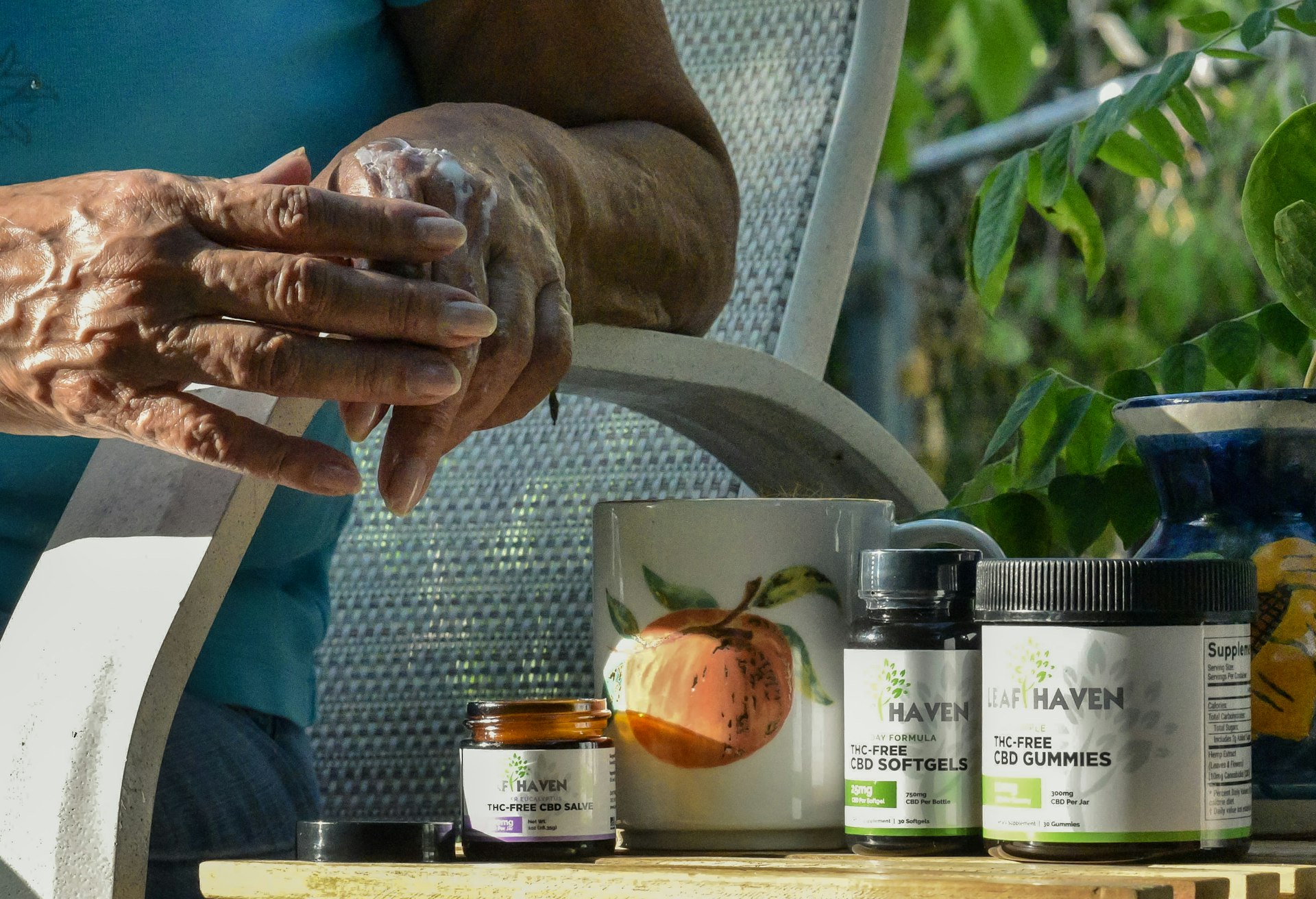Adaptogen Herbs: A Comprehensive Guide to Building Stress Resilience Naturally

Photo by Thomas Kinto on Unsplash
Introduction to Adaptogens and Stress Resilience
Modern life is rife with stressors, from demanding work schedules to personal challenges. Building stress resilience is crucial for maintaining overall health and well-being. Adaptogen herbs have garnered attention for their potential to help the body cope with stress, balance energy, and restore equilibrium. This guide provides evidence-based insights, practical application steps, and guidance for safely accessing these natural supports.
What Are Adaptogen Herbs?
Adaptogens are a unique class of herbs, roots, and medicinal mushrooms believed to help the body adapt to physical, mental, and environmental stressors [4] . They work by supporting the body’s ability to achieve balance (homeostasis) after stress exposure. The concept was introduced by Russian scientist Dr. Nikolai Lazarev in the mid-20th century [2] .

Photo by Luke Peterson on Unsplash
Adaptogens are not a replacement for medical care, but research suggests they can be a useful adjunct for those seeking holistic approaches to stress management. It’s important to consult a healthcare provider before starting any new supplement, especially if you have existing health conditions or take medications [4] .
Top Adaptogen Herbs for Stress Resilience
Multiple adaptogens have been studied for their effects on stress and overall health. Here are some of the most widely used and researched options:
Ashwagandha (
Withania somnifera
)
Ashwagandha is one of the best-known adaptogens for stress resilience. Clinical studies suggest it can reduce anxiety, lower cortisol (the primary stress hormone), and support better sleep and mood [2] . Ashwagandha is often used in Ayurvedic medicine and may benefit those experiencing chronic stress or fatigue [4] .
Example Application: Individuals facing ongoing work-related stress have reported improved sleep quality and less anxiety after a few weeks of daily ashwagandha supplementation, according to multiple clinical trials. Always start with a low dose and monitor for side effects.
Rhodiola Rosea
Rhodiola is a mountain herb traditionally used to combat fatigue and enhance mental performance. Modern studies show it can reduce stress-related fatigue, support mental performance under pressure, and blunt cortisol spikes [5] . Rhodiola may be especially helpful for those who experience burnout, mental exhaustion, or the effects of sleep deprivation.
Case Study: In clinical research, standardized Rhodiola extract improved mental performance and reduced fatigue in young doctors working overnight shifts. Students under exam stress also reported better focus and well-being when supplementing with Rhodiola [5] .
Ginseng (Panax and American Ginseng)
Ginseng is another classic adaptogen. Both Asian (Panax) and American ginseng are believed to help regulate cortisol production, enhance immune function, and support overall stamina [1] . Ginseng is popular for combatting physical fatigue and promoting resilience during periods of high demand [4] .
Practical Use: Ginseng is commonly found in capsules, teas, or tinctures. Consult your pharmacist or integrative health provider for advice on reputable brands and dosage.
Holy Basil (Tulsi)
Tulsi , or Holy Basil, is revered in Ayurvedic medicine for its nutrient density and calming effects. Research suggests it helps regulate blood pressure, supports metabolic health, and enhances the body’s ability to cope with stress [1] . Holy Basil is often consumed as a tea, making it a gentle, daily ritual for stress resilience [4] .
Schisandra
Schisandra berries are used in traditional Chinese medicine to support the endocrine, immune, and nervous systems. Modern studies indicate Schisandra may help modulate cortisol and improve endurance, concentration, and coordination [1] [4] .
Eleuthero (Siberian Ginseng)
Eleuthero is sometimes called Siberian Ginseng (though not botanically related to true ginseng). It has been shown to enhance adrenal function, support energy reserves, and help the body adapt to physical and mental stressors [2] .
Single Herbs vs. Adaptogen Combinations
Some people prefer single-herb adaptogen supplements, which can address specific needs such as mental fatigue or immune support. However, combining adaptogens can offer synergistic effects, covering multiple aspects of stress such as neuroendocrine, immune, metabolic, and psychological balance [3] . For example, pairing a stimulating adaptogen like Rhodiola with a calming one like Ashwagandha may provide balanced energy and relaxation.
Additionally, ingredients like black pepper extract (piperine) are sometimes added to formulations to enhance the bioavailability of adaptogens. Always read labels carefully and consult a professional before combining herbs, as interactions are possible.
How to Safely Incorporate Adaptogens
Before starting any adaptogen regimen:
- Consult your primary healthcare provider, especially if you are on medication or have chronic health conditions. Adaptogens can interact with prescription drugs [4] .
- Choose reputable brands that use standardized extracts and third-party lab testing. Look for products certified by organizations like USP or NSF.
- Begin with a low dose and monitor for side effects such as digestive upset or allergic reactions.
- Consider starting with single herbs to gauge your body’s response before exploring combinations.
It’s advisable to purchase adaptogens from established retailers, health food stores, or licensed practitioners. You can also consult your local pharmacist or integrative medicine clinic for guidance on reputable suppliers and usage protocols.
Potential Challenges and Solutions
Some challenges include:
- Quality and Purity: Supplements are not as strictly regulated as pharmaceuticals, so contamination or mislabeling is possible. Always verify quality through independent lab testing and consult with healthcare professionals.
- Interactions and Side Effects: Adaptogens can interact with medications or existing health conditions. It’s critical to discuss any new supplements with your physician.
- Individual Response: Not everyone experiences the same benefits, and some people may be more sensitive to certain herbs. Track your response and adjust as needed.
Alternatives and Complementary Approaches
Adaptogens are one tool among many for building stress resilience. Complementary strategies include regular physical activity, mindfulness practices, adequate sleep, balanced nutrition, and professional counseling. Combining these approaches with adaptogens may yield the best results for long-term stress management.
If you are unable to access adaptogens, consider focusing on lifestyle interventions or consult with a registered dietitian or integrative medicine specialist for alternative recommendations.
How to Access Adaptogen Resources and Professional Support
You can access adaptogen herbs through:
- Health Food Stores: Many carry reputable brands of adaptogen supplements. Ask staff for products with third-party testing.
- Pharmacies: Some pharmacies offer herbal supplements and may have a pharmacist trained in integrative health.
- Integrative Medicine Clinics: These clinics often employ practitioners skilled in botanical medicine who can provide tailored advice.
- Online Retailers: When purchasing online, ensure you use established sites with strong reputations and verified product information. Always check for third-party certifications and customer reviews.
To find a qualified practitioner, search for “integrative medicine clinic near me” or “registered herbalist” in your area. You can also inquire with your primary care provider about referrals to integrative or complementary health professionals.
Key Takeaways
Adaptogen herbs offer promising, evidence-backed support for building stress resilience. While scientific research continues to evolve, many individuals experience benefits from integrating these botanicals into a holistic wellness routine. Always prioritize safety, consult with healthcare professionals, and take a thoughtful approach to supplementation.
References
[1] Moon Juice (2024). The Best Adaptogens for Stress. [2] Tahiro (2025). 6 Best Adaptogens For Stress And Hormone Balance. [3] Momentous (2025). The Best Adaptogen Combinations for Stress & Energy. [4] UCLA Health (2022). What are adaptogens and should you be taking them? [5] Mind Lab Pro (2025). Adaptogens for Stress – Which Are the Best?
MORE FROM weirdsearch.com













